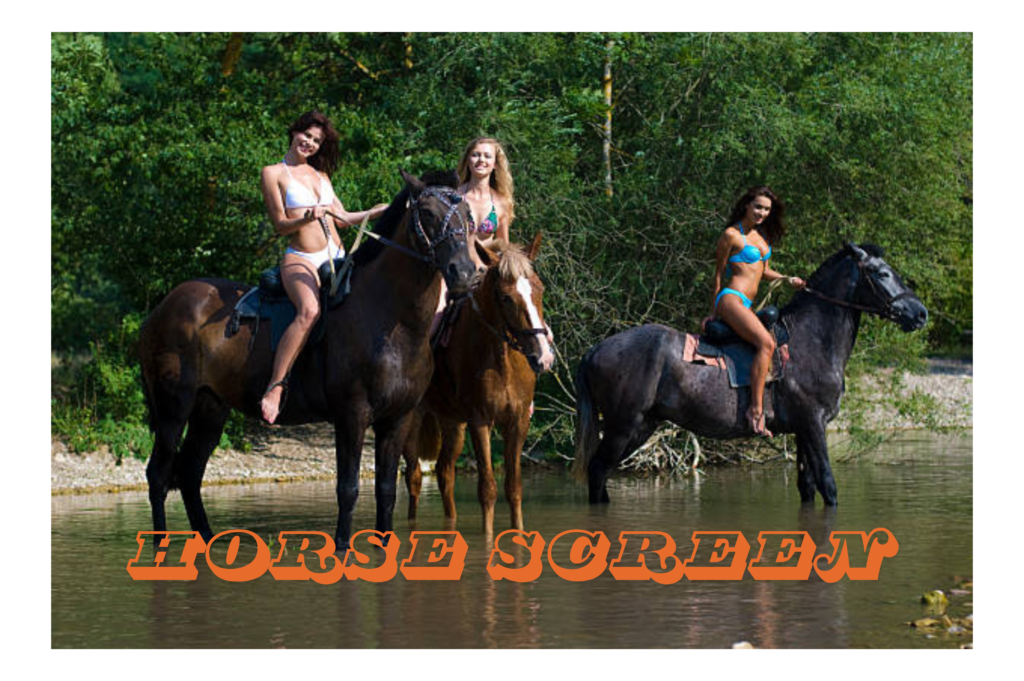What Is It? A horse screen, also known as a horse fly screen or equine screen, is a specialized covering designed to protect horses from flies, insects, and other environmental irritants. These screens come in various forms, including blankets, masks, and sheets. They serve multiple purposes, from preventing insect bites to providing UV protection.
Components of a Horse Screen
- Material: Typically made from lightweight, breathable mesh or fabric that allows air flow while keeping insects out.
- Design: Includes options like full-body covers, neck pieces, and face masks to offer comprehensive protection.
- Fastening: Often equipped with adjustable straps and closures for a secure fit.
Horse Screen: Benefits for Us
Protection from Insects
Horse screens are primarily used to shield horses from insects like flies, gnats, and mosquitoes. These pests can cause discomfort, spread diseases, and lead to behavioral issues in horses. By using a horse screen, you reduce the risk of these problems and improve your horse’s overall well-being.
UV Protection Of A Horse Screen
In addition to insect protection, horse screens can offer UV protection. Some screens are designed to block harmful UV rays, preventing sunburn and skin damage. This is especially beneficial for horses with light-colored coats or sensitive skin.
Enhanced Comfort
A well-fitted horse screen provides comfort by keeping insects away and reducing itchiness and irritation. Horses can enjoy their time outdoors without the constant annoyance of flying pests.
Improved Health With Horse Screen
By minimizing insect bites and exposure to UV rays, horse screens help maintain better skin health. This can reduce the risk of infections, allergic reactions, and other skin issues.
A Beautiful Mess: Challenges of Horse Screens
Fit and Adjustments
Finding the right fit for a horse screen can be challenging. Screens that are too tight can restrict movement, while those that are too loose may not provide adequate protection. Proper adjustment and sizing are crucial for effectiveness.
Durability Of A Horse Screen
Horse screens are subjected to wear and tear from daily use and environmental factors. They need to be durable and able to withstand outdoor conditions. Choosing high-quality materials and construction can enhance their longevity.
Maintenance
Maintaining a horse screen requires regular cleaning and inspection. Screens can collect dirt, sweat, and debris, which can affect their performance. Regular washing and repairs are necessary to keep the screen in good condition.
Cost Of Horse Screen
High-quality horse screens can be an investment. While they provide significant benefits, the initial cost and potential for replacement can be a concern. Evaluating the durability and effectiveness of different screens can help manage costs.
How to Deal with It?
Choosing the Right Screen
Selecting the appropriate horse screen involves considering factors such as the horse’s size, the type of insects in your area, and the screen’s intended use. Consulting with a veterinarian or equine specialist can provide valuable guidance in making the right choice.
Proper Fitting and Adjustment
Ensure the horse screen fits correctly by measuring your horse accurately and following the manufacturer’s sizing guidelines. Adjust the straps and closures to achieve a secure fit without causing discomfort.
Regular Maintenance
To keep your horse screen effective, clean it regularly according to the manufacturer’s instructions. Inspect it for any signs of damage or wear, and make necessary repairs to maintain its functionality.
Budget Considerations
If cost is a concern, consider investing in a high-quality screen that offers durability and effectiveness. Evaluate different options and look for sales or discounts to manage expenses.
Additional Tips
Training Your Horse
Introducing your horse to the screen gradually can help them adjust to wearing it. Positive reinforcement and patience can make the process smoother and more comfortable for your horse.
Environmental Considerations
In addition to using a horse-screen, managing your horse’s environment can further reduce insect exposure. Keeping stables clean, using fly repellents, and maintaining good hygiene practices can enhance overall protection.
Alternatives and Add-Ons
Explore alternative products or add-ons, such as fly repellents or insecticidal treatments, to complement the horse-screen. These can provide additional layers of protection and enhance your horse’s comfort.
Conclusion
The “horse screen” is a valuable tool for protecting horses from insects, UV rays, and other irritants. By understanding its benefits, challenges, and how to manage it effectively, you can enhance your horse’s comfort and well-being. Proper selection, fitting, and maintenance are key to maximizing the advantages of a horse screen.
Frequently Asked Questions About Horse Screen
1. What is a horse-screen?
A screen is a protective covering designed to shield horses from insects, UV rays, and other irritants. It comes in various forms, including blankets, masks, and sheets.
2. Why should I use a horse-screen?
A screen provides protection from insects, reduces the risk of skin issues, offers UV protection, and enhances overall comfort for your horse.
3. How do I choose the right horse-screen?
Consider your horse’s size, the type of insects in your area, and the screen’s intended use. Consult with a veterinarian or equine specialist for guidance.
4. How do I ensure a proper fit for the horse-screen?
Measure your horse accurately and follow the manufacturer’s sizing guidelines. Adjust the straps and closures for a secure fit without causing discomfort.
5. What are the maintenance requirements for a horse-screen?
Regularly clean the screen according to the manufacturer’s instructions and inspect it for damage. Make necessary repairs to keep it in good condition.
6. Are horse-screens expensive?
High-quality screens can be an investment. Evaluate different options for durability and effectiveness to manage costs. Look for sales or discounts if cost is a concern.
7. Can I use additional products with a horse-screen?
Yes, you can complement the screen with fly repellents, insecticidal treatments, and environmental management practices to enhance protection and comfort.

